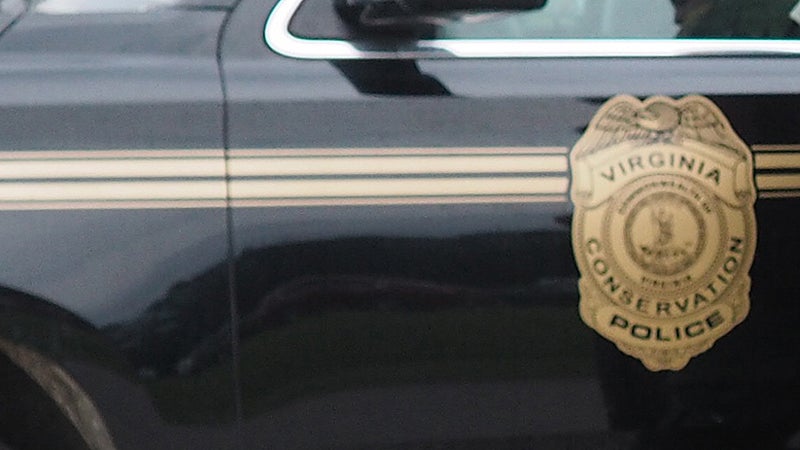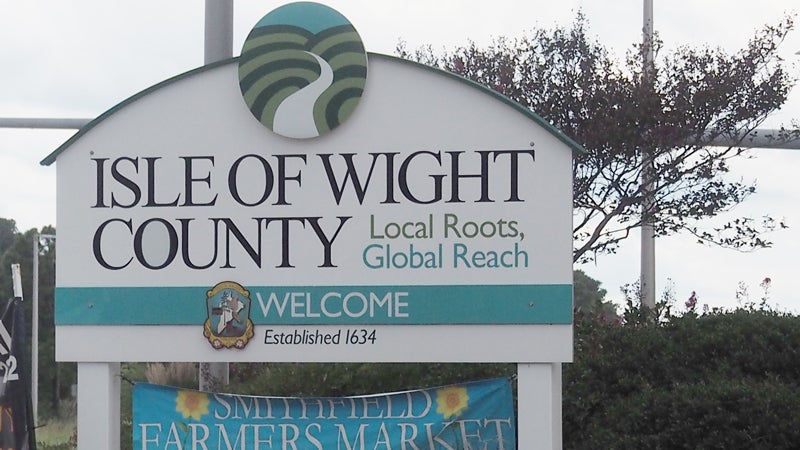Deer carcass left rotting in Smithfield cul-de-sac
Published 4:39 pm Tuesday, November 29, 2022

- Virginia Conservation Police, a division of the Department of Game and Inland Fisheries, have been trying for years to identify who's been leaving deer carcasses at the South Church Street cul-de-sac in Smithfield.
Despite a multi-year ongoing investigation, Virginia Conservation Police say they still haven’t identified who’s been leaving deer carcasses at the edge of a dead-end road in Smithfield.
South Church Street resident Jim Groves, who lives on an older stretch of the street that dead-ends at a cul-de-sac overlooking the east bank of Cypress Creek, says his family has been finding carcasses in varying states of decomposition left near their home for at least six years.
Groves’ wife, Wanda Pearson, was walking toward the cul-de-sac picking up trash the morning of Nov. 23 when she saw the most recent carcass, Groves said.
Groves remembers Wanda’s daughter, who was living with them at the time, bringing an antlered deer skull back to the couple’s house six to eight years ago. Groves initially assumed, based on the carcass’s level of decomposition, that the deer had crawled out of the marsh by the cul-de-sac and died on the street.
But when it happened again with a fresh carcass, it became obvious to him that one or more hunters were leaving them after dark, and he reported the issue to Virginia Conservation Police, a division of the state’s Department of Game and Inland Fisheries.
According to past reporting by The Smithfield Times, a DGIF investigation has been ongoing since at least 2019. At that time, DGIF was operating under the belief that the carcasses had been the work of a poacher or at least someone who is not following Virginia’s hunting rules.
“Several times an officer has told us that the deer did not qualify” under Virginia’s hunting laws, Groves said.
According to Virginia Conservation Police 1st Sgt. Brandon Woodruff, his agency has tried using cameras over the years to catch the culprit and has gathered “some information on a potential vehicle,” but “it’s a little harder to pinpoint when to do surveillance there.”
A lot of times, people will hunt on Saturdays, but occasionally carcasses have turned up on weekdays too, Woodruff said, noting a carcass had been dumped last year in October.
The crimes, which would be prosecuted as misdemeanor littering or possibly trespassing, Woodruff said, have typically occurred during Virginia’s muzzleloader or regular firearms seasons.
Hunting season, he explained, starts with archery the first Saturday in October for four weeks. Then comes muzzleloader season for two weeks, starting with the first Saturday in November. General firearms season is Dec. 19 through the first Saturday in January.
Some hunting grounds have on-site burial pits. But a lack of disposal options in Isle of Wight County may be driving some hunters to dump their kills unlawfully, Woodruff speculated, noting in “most counties, you can’t just take it to the landfill.”
According to the Southeastern Public Service Authority’s website, large animal carcasses aren’t accepted at SPSA’s Isle of Wight waste transfer station on Foursquare Road, though smaller carcasses “may be accepted” at SPSA’s regional landfill in Suffolk. Taking a carcass to the Suffolk landfill “may require prior approval,” the website states.
Meatpacking plants can be another option for lawful disposal of carcasses, Woodruff said, noting the former Valley Proteins plant in neighboring Southampton County used to accept carcasses for disposal. The plant ceased processing operations in 2013. The Times has reached out to Smithfield Foods, inquiring whether the meatpacking plant in Smithfield has or would offer such a service, and is awaiting a response.
The Sussex County-based Bent Barrell Hunt Club has its members take any carcasses back to Sussex for disposal. Bent Barrell is one of two hunt clubs that lease part of the Isle of Wight County-owned Blackwater Property, which consists of 2,507 acres of forestland along the Blackwater River.
“We would love to find another place like Valley Protein,” said a Bent Barrell Hunt Club spokesman who identified himself only as “Mike.”
The Dunn Hunt Club, also of Sussex County, is the other lessee of the Blackwater Property. The two hunt clubs have access to the land on Thursdays, Fridays and Saturdays. On Mondays, Tuesdays and Wednesdays, the land is open by one-day or annual permits to individuals for a variety of outdoor activities, including hunting.
In addition to calling the Virginia Conservation Police whenever a new carcass is left during the night, Groves and Pearson have found themselves calling Smithfield’s Public Works Department.
“They are nice enough to come and remove those carcasses,” Groves said, but “it puts a burden on the town as well.”
The culprit is “probably someone who lives close by,” Woodruff said.
“It’s just gross,” Groves said, noting families with children have come down to the cul-de-sac to watch the sun set over Cypress Creek only to be greeted by the sight of a decomposing deer corpse.
“We’re really tired of it; I’m sure it’s the same person year after year,” Groves said.





